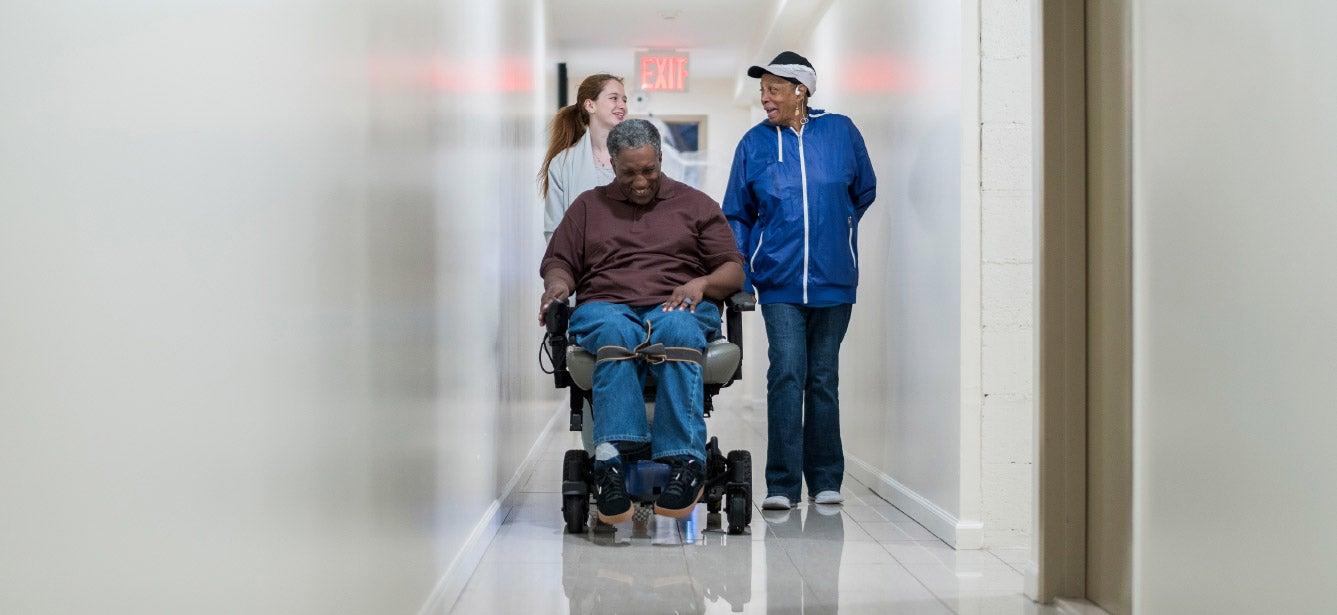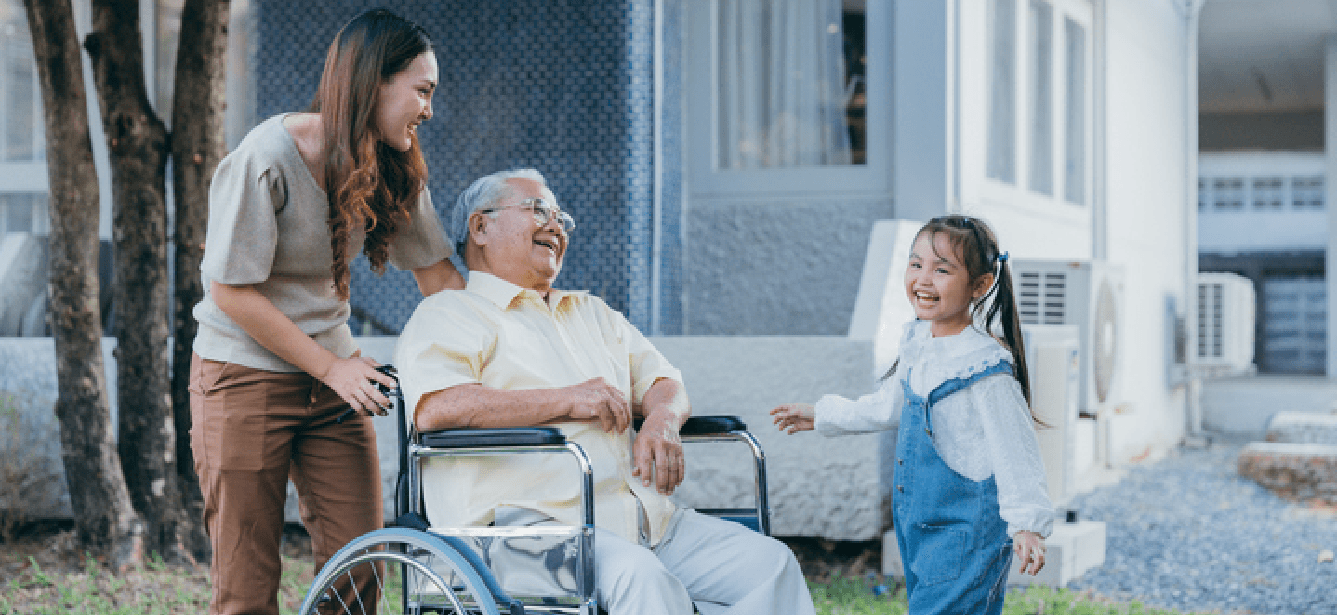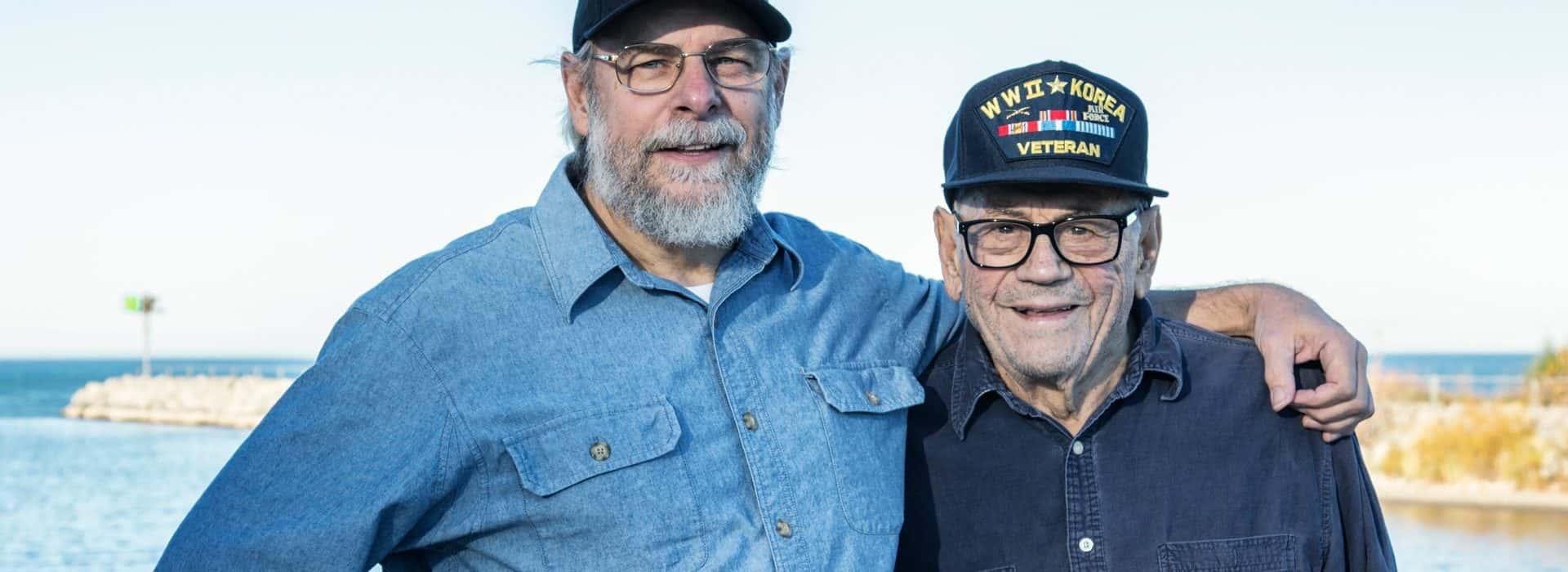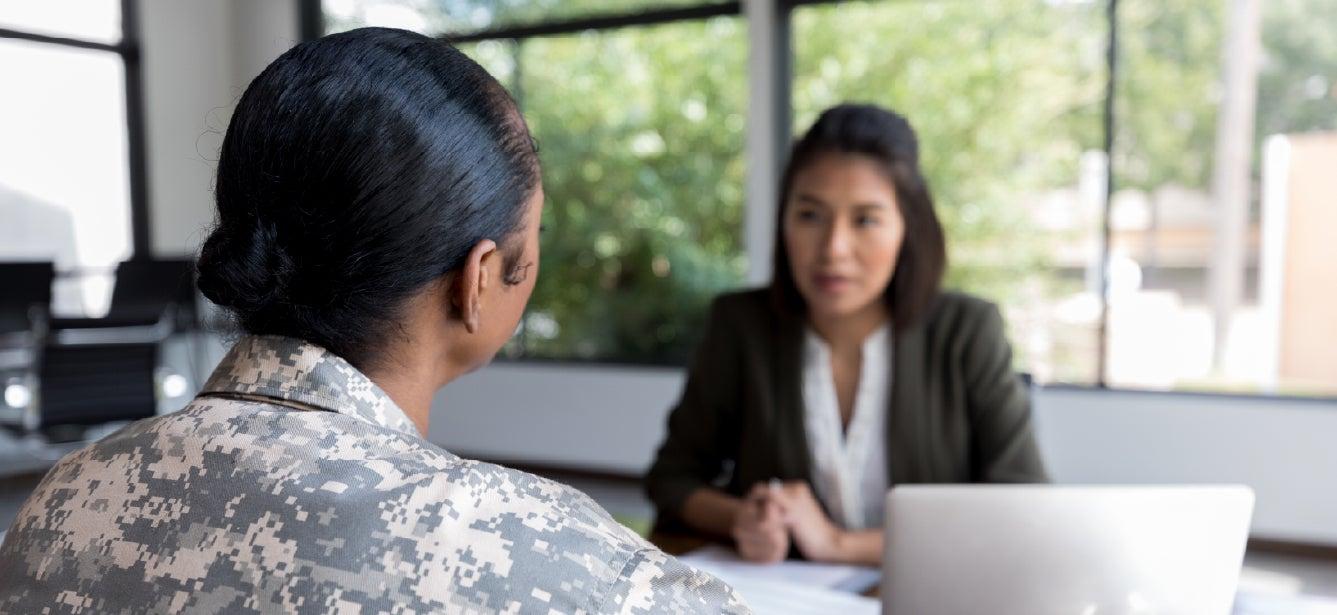
Do you care for a spouse, parent, extended family member, friend, or neighbor who served in the military? You might not consider yourself to be a caregiver. But you may be one if you regularly help an older veteran with tasks such as:
- Housework and meals
- Grocery shopping
- Traveling to and from doctor appointments
- Dressing, bathing, or showering
- Managing finances
- Monitoring their medical condition
- Picking up and managing medications
The Family Caregiver Alliance defines a family or informal caregiver as:
“… any relative, partner, friend or neighbor who has a significant personal relationship with, and provides a broad range of assistance for, an older person or an adult with a chronic or disabling condition. These individuals may be primary or secondary caregivers and live with, or separately from, the person receiving care.”
The challenges of caring for veterans
More than 5.5 million people serve as informal caregivers for older or disabled veterans across America—many of them without any kind of pay.1 In fact, it’s not uncommon for family caregivers to spend thousands out of their own pockets each year to fund the expense of caretaking.
While caregiving is rarely an easy job, people who care for veterans face unique challenges. Studies show that VA health care patients in particular have a higher rate of serious and chronic health conditions such as cancer, diabetes, and hypertension. Those who served in active battle often have mental health needs stemming from post-traumatic stress disorder (PTSD) or traumatic brain injury (TBI). Additionally, veterans show more dramatic age-related declines in memory performance later in life.
Due to service-related injuries and chronic conditions, older veterans are also more likely to have limited ability to perform daily living activities. This makes them more dependent on caregivers over time. More than half of older veterans, in fact, report having trouble with functioning and rate their health as "fair" or "poor."
On top of all of this, veterans and their caregivers grapple with an understaffed, overburdened VA health care system that's already struggling to keep up with the demand for services.
Why it’s vital to seek and accept help as a veteran caregiver
For caregivers of veterans especially, burnout is a real and serious risk. After spending so much of your time and energy caring for someone else, it's easy to overlook your own well-being. But there’s a price to pay for that: the strain of caregiving with no relief can lead to intense negative emotions ranging from grief to anger and resentment. It can also cause chronic exhaustion, depression, and health issues.
So where do you turn for help when the burden of caregiving becomes too much? What are the best options for assistance when caring for an older veteran?
If you’re dealing with caregiver stress or burnout, the most important thing to understand is you are not alone. Following is a collection of resources that can help you balance the needs of others with your own.
6 support resources for military caregivers
1. Program of General Caregiver Support Services (PGCSS)
The PGCSS program is the heart of the Caregiver Support Program (CSP) administered by the VA, providing resources, education, and support to caregivers of veterans. Caregivers who take part in PGCSS are called “General Caregivers” and do not have to be a direct relation or live with the veteran. Available services include:
- Telephone support
- Coaching
- Peer support mentoring
- Skills training
To enable PGCSS services, a veteran does not need to have a service-connected medical condition and may have served in any era. However, that individual must be enrolled in VA health care in order for their caregiver to receive support.
There is no formal application process for PGCSS; just contact the VA Caregiver Support Team at 1-855-260-3274 (toll-free). You can also ask for a referral from the veteran’s health care provider.
2. Program of Comprehensive Assistance for Family Caregivers (PCAFC)
The VA’s PCAFC program is for eligible veterans who have incurred or aggravated a serious injury in the line of duty on or before May 7, 1975, or on or after September 11, 2001. To participate, a veteran must have a single or combined service-connected disability rating of 70% or higher. Caregivers must meet the requirements of being a Family Caregiver as defined by the VA, which means they must be a relative of the eligible veteran or live with that person full time as the designated caregiver.
For those who fit the criteria, the PCAFC program provides enhanced clinical support and services for caregivers, such as:
- Educational resources
- A financial stipend
- Health insurance (if eligible)
- Beneficiary travel (if eligible)
- Mental health services
The veteran and caregiver must both apply to the program. While this can be done online, we suggest working directly with a VA Caregiver Support Team member. To find one locally, browse the VA Caregiver Support Directory, or call the Caregiver Support Line at 1-855-260-3274 (toll-free).
3. Military Caregiver PEER (Personalized Experiences, Engagement and Resources) Forum Initiative
This nationwide initiative employs specially trained military counselors to organize and hold forums for caregivers of service members and veterans. Topics explored during these guided discussions include:
- Stress management
- Nutrition
- Financial wellness
- Employment
Find a Military Caregiver PEER Forum happening near you.
4. Caregiver Resource Directory (CRD)
Sponsored by the U.S. Department of Defense, the regularly updated CRD centralizes information and resources specific to military caregivers, including insights on:
- Financial support
- Respite care
- Hospice
- Helplines
- Mental health
- Home care assistance
- Peer support and mentoring
- Suicide prevention
Go to the 2022 Caregiver Resource Directory online to learn more.
5. Hidden Heroes
This organization was founded by Senator Elizabeth Dole in honor of her husband, politician Bob Dole, who was wounded in World War II. In addition to working to raise awareness surrounding military caregiver issues, Hidden Heroes provides comprehensive caregiver resources and support that include:
- Educational resources (such as Caregiver Q&A)
- An online caregiver community
- Access to free, short-term respite care
- Financial assistance in the form of grants
Visit the Hidden Heroes website to learn more.
6. Family Caregiver Alliance (FCA)
Through its National Center on Caregiving, FCA connects caregivers across the U.S. with vital support resources in their communities. These resources, available in multiple languages, include:
- Caregiving tips
- Educational videos
- Information on specific health conditions
- Strategies for self-care
- Support groups (online, in-person, and via phone)
- Classes and events
Explore the FCA website to learn more. You can also use their map tool find family caregiver services in your state.
Caregiver benefits are there for the taking—and you’ve earned them
Being a caregiver to an older veteran takes a special kind of person. You not only tend to their everyday practical needs; you provide companionship, comfort, and emotional support.
Just as we appreciate the sacrifices of our service men and women, we’re grateful for the sacrifices you’ve made as well.
But you can’t pour from an empty cup. We encourage you to take advantage of the programs outlined in this article to ease your caretaking burden and prioritize your own mental and physical health.
Source
1. Veteran caregivers at risk of burnout | Here's how you can help, WTOL11. Found on the internet at https://www.wtol.com/article/life/family-focus/veteran-caregivers-at-risk-of-burnout/512-58f93523-3cbc-4945-ba0d-e472c5de53cd




